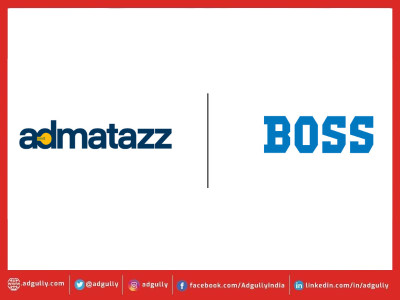Women leaders in India are increasingly visible: Yana Tolmacheva, Hybrid
We, at Adgully, have always saluted and honoured women managers and leaders across diverse fields. W-SUITE is a special initiative from Adgully that has been turning the spotlight on some of the most remarkable women achievers in the M&E, Advertising, Marketing, PR and Communications industry. In the refurbished series, we seek to find out how women leaders have been managing their teams and work as well as how they have been navigating through the toughest and most challenging times brought about by the global pandemic.
In an exclusive interaction with Adgully, Yana Tolmacheva, Marketing Lead - INSEA & Europe, Hybrid, speaks at length about the role and scope of women leaders; Effective Leadership skills; why women are best at crisis management, and much more…
How do you think the role and scope of women leaders has widened in the current market ecosystem?
Before my first visit to India, I had known this country as a very patriarchal one. I had even been scared because of all this information in open sources. However, when I came, I was pleasantly surprised as there are a lot of initiatives that raise this problem in society. Nobody is afraid of speaking about women discrimination, and everybody aims to eliminate it.
I suppose now traditional gender roles and stereotypes are gradually being challenged and redefined in society. There is a growing acceptance and recognition of women’s capabilities and their potential to lead in different domains. At the same time, many organisations in India have introduced policies and programs to support and empower women leaders, such as mentoring programs, leadership development initiatives, and flexible work arrangements.
Women leaders in India are increasingly visible and are breaking barriers in traditionally male-dominated sectors. They are leading companies, heading government organisations, and making significant contributions in fields like technology, finance, healthcare, and advertising of course. For example, I’ve met so many women participating in industrial events and conferences. Nevertheless, there is one important point: society shouldn’t stop here, and vice versa, they should continue changing their attitude towards a woman as a leader.
In your opinion, what unique strengths or qualities do women bring to leadership positions?
First of all, it is empathy and emotional intelligence. This empathy helps create a supportive and inclusive work environment, fostering stronger relationships and collaboration. For instance, for women it is easier to make compromises and avoid conflicts. Especially, if there is no sense of conflict at all. And of course, women’s intuition that really helps us while making decisions.
What is your mantra for maintaining a successful work-life balance in the new normal? According to you, what makes women the best in crisis management?
It’s really crucial to make a schedule. It may sound banal, but it actually works. I always have a set of tasks for a day (including working and personal ones), and it helps me to organise my routine. I always spend time on activities that recharge and rejuvenate me such as hiking or riding a bike. It fills me with energy.
Regarding the second question, I suppose it is empathy again. We are able to listen and we are really good at problem solving. We might not always take the initiative, but we always can lead to solutions.
What are the five most effective leadership lessons that you have learned?
That’s only my experience, but it seems that these pieces of advice can be really versatile:
- Effective communication to avoid misunderstanding inside the team;
- Delegation to develop skills and to foster a sense of ownership and motivation within the team;
- Continuous learning that is really crucial in our fast developing digital world;
- Decision-making;
- Remaining a positive example and motivation
Gender sensitivity and inclusion in the new normal – how can organisations effectively encourage and groom women leaders in challenging times?
In my opinion, the key to creating a more inclusive and equitable workplace is to provide leadership development programs, focusing on areas such as communication, negotiation, strategic thinking, and decision-making. And of course, the inner culture of the company is important as well. The enterprise should encourage open dialogue, provide equal opportunities for women to participate and contribute to communication processes. However, as for me, women shouldn’t stand on the sidelines, we should act as brightly and confidently as possible. Like women in India do now.



















Share
Facebook
YouTube
Tweet
Twitter
LinkedIn